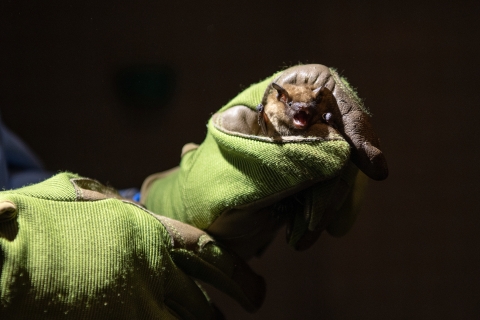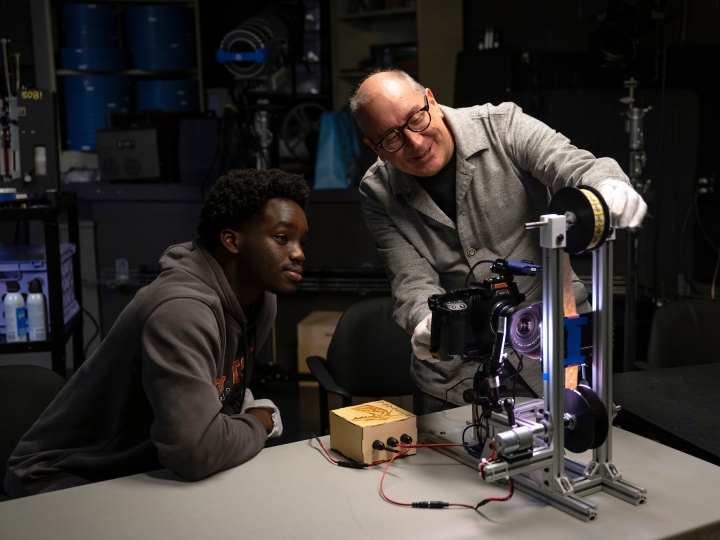
Bucknell's Reeder Panelist in Cornell Webinar on Preventing the Next Pandemic
June 14, 2023
Professor DeeAnn Reeder, biology. Photo by Emily Paine, Marketing & Communications
Bucknell University Professor DeeAnn Reeder, biology — a noted scholar on bats and disease transmission to humans — will be a panelist in the webinar, "How to Prevent the Next Pandemic: Nature-Based Solutions and Policy Opportunities," hosted by Cornell University Monday, June 26 at 11 a.m.
Reeder is among 10 global and cross-disciplinary experts who will examine the fundamental drivers of pandemics, the strategies we can take to prevent them, and the current policy opportunities for primary pandemic prevention. The webinar will be moderated by award-winning science writer David Quammen and also feature an opening statement by Maria Van Kerkhove, head of the Emerging Diseases and Zoonoses Unit for the World Health Organization (WHO) and technical lead for WHO’s COVID-19 response.

Reeder holds a little brown bat in Bucknell's bat lab. Photo by Emily Paine, Communications
Reeder will present after webinar host Raina Plowright, a Cornell Atkinson Scholar and the Rudolf J. and Katharine L. Steffen Professor of Veterinary Medicine in the Department of Public and Ecosystem Health, introduces zoonotic spillover from bats to humans and the ecological countermeasures that can be deployed to stop spillover.
"As the only flying mammals, bats are ecologically and physiologically unique," Reeder says. "Like other animal hosts, they have likely co-evolved with certain viruses for hundreds, even thousands of years. Spillover, never the animal’s fault, occurs at the human-animal interface, which is increasingly more common due to human activity, such as encroachment, hunting, etc. Human activity not only makes bat-human contact more likely, it also impacts the health of bats, for example, by depleting their food supply, which can lead to higher levels of viruses being shed."
Before COVID-19, the 2014-16 Ebola epidemic was the last major global health scare. A common denominator in both SARS-CoV-2 and Ebola outbreaks is the likely evolutionary origin of these viruses in bats. Reeder and fellow Bucknell Professor Ken Field, biology, just completed work in Uganda on a project funded by a $2.9 million grant by the National Institute of Allergy and Infectious Diseases for research on the relationship between bats and viruses, specifically focusing on Ebola.
With assistance from a small number of Bucknell undergraduate students and a partnership with Muni University in Uganda, the researchers are studying three bat species native to Uganda — fruit, free-tailed and horseshoe — that have varying potential links to the spread of the Ebola virus. One of the largest research grants in Bucknell history, this funding is enabling them to investigate the unique physiology of bats and how this enables them to act as potential hosts for deadly pathogens that can spill over to humans.
"The details of how the bat immune system works, especially against viruses, are very actively being researched all around the world, including my own studies in Uganda with potential Ebola virus hosts," says Reeder. "It does seem that bats’ immune systems have a number of modifications that allow them to be either resistant or tolerant of viruses, especially those that are of significant human health concern, including Hendra and Nipah viruses, Ebola and Marburg, and rabies."
The Bucknell researchers hope to publish results from their work in Uganda on bats and Ebola within the year.

